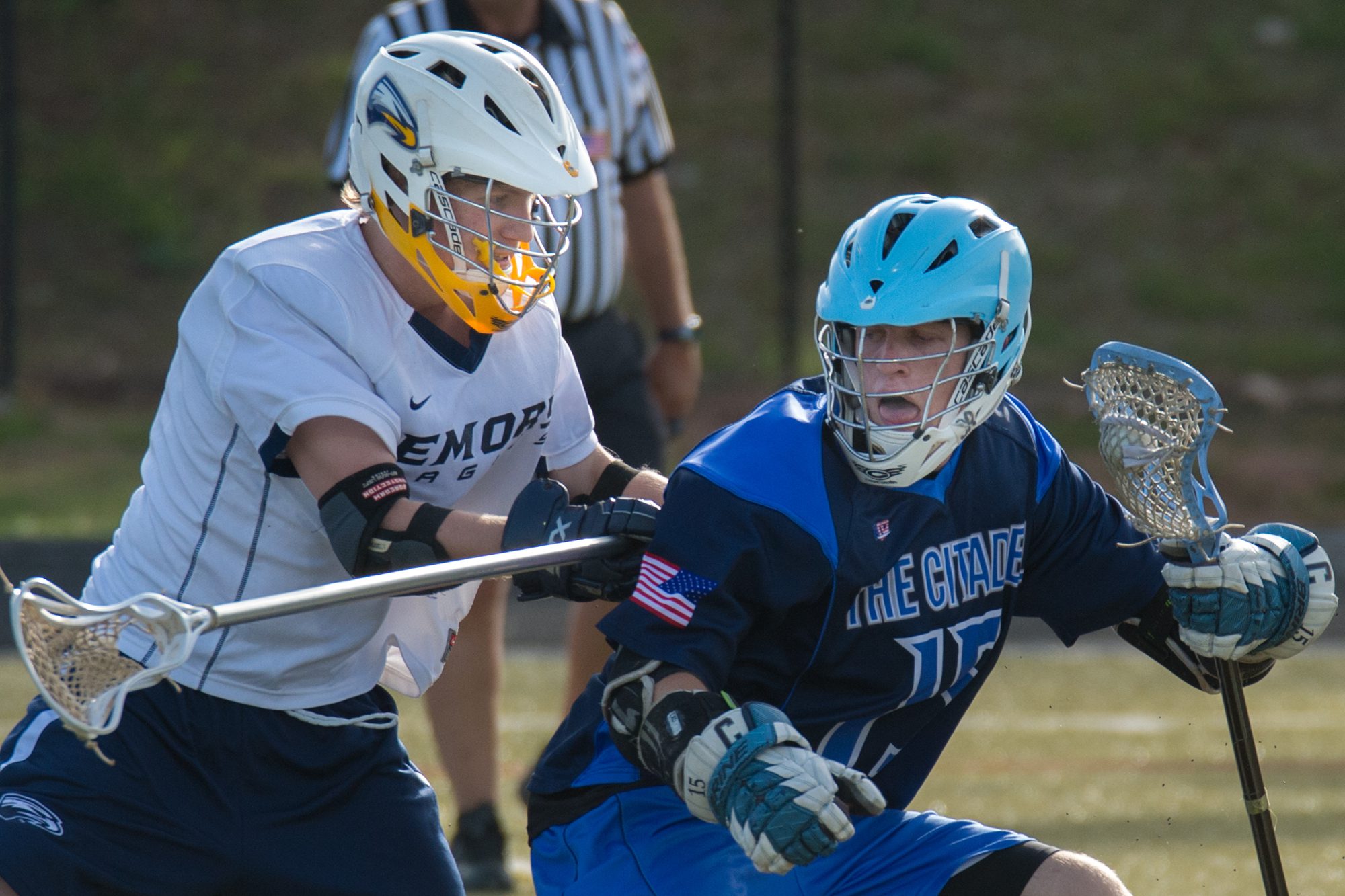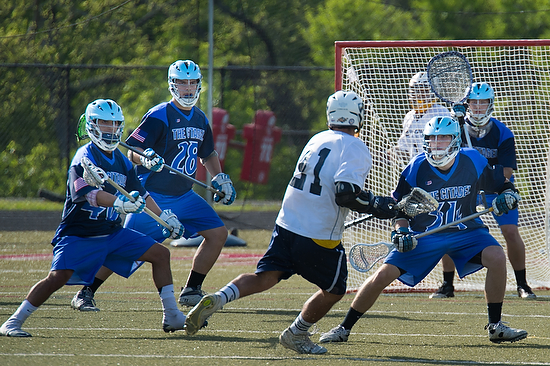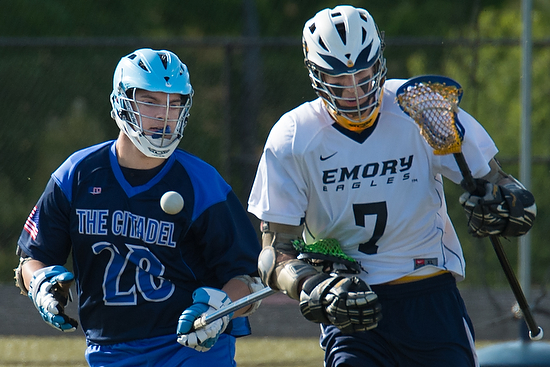Nikon D4, Sigma 120-300mm ƒ/2.8 with Sigma 1.4 converter, ISO 900, ƒ/5.6, 1/2000
I am so thankful I was covering this lacrosse game between The Citadel and Emory University this past Friday rather than when the game was first played. Initially, they had between 100 to 1,000 players on a much more significant field and played for two to three days.
Wikipedia reports, “Lacrosse played a significant role in the community and religious life of tribes across the continent for many years. Early Lacrosse was characterized by deep spiritual involvement, befitting the spirit of combat in which it was undertaken. Those who took part did so in the role of warriors, to bring glory and honor to themselves and their tribes.”
Today we celebrate our sporting victories with parties. In many ways, the money we spend on sports looks like our religious events. Sportswriters even talk about the house of worship when referring to some venues. We have the call to worship with the national anthem, and we even participate by standing and cheering.
All this is to say we love our sports.
The players in the game I covered are not on scholarships but rather play for the pure enjoyment of the game.
As I walked onto the field, I decided to shoot most of the match back-lit. I knew from years of shooting with the sun in their faces that often, the helmets would cast wicked dark shadows over their eyes. I wanted to see the sights.
The dynamic range of a highlight to a shadow goes from the bright spot on their face to the darkest area, which is almost always the eyes. So by shooting on the shadow side, I just opened up a little. The other benefit was the stands in the background were in the shade. This helped to pop the athletes out from the background.
Parents
So you bought a nice DSLR and a lovely lens that the camera store recommended to cover your child in sports. There are just a few tips to remember to make all your photos a lot better.
Get to the game early—This will give you time to scout out the best locations for taking photos and get a feel for the lighting conditions at the field or court.
Get closer—Most parents could have saved a lot of money had they done what most pros do. Get out of the stands and get on the sidelines of the field. You may need permission, but this will improve your photos.
Shoot tight—While occasionally a looser shot can work, if it does, you still need to enlarge it to enjoy it as compared to the tight shots. Also, while you can crop later, the photos shot with a longer lens and not cut tend to look better than the cropped image, technically. One of the reasons is the uncropped idea is full resolution.
Use continuous shooting mode—This will allow you to take a rapid-fire series of photos, which can help capture fast-moving sports action.
Know the game—You need to understand the rules and what the point of the game is all about. This knowledge will help you locate the best place to capture those peak game moments.
Subscribe to sports magazines—Almost every sport has magazines with good examples of great images. Be familiar with what the standard shots are for the sport.
Fast shutter speed—Your photos will be sharper and more in focus if you keep the shutter speed fast. I recommend 1/2000. This will minimize your camera movement and help freeze the athletes. If you read about shutter speed, many recommend 1/500. But, if you got the light, shoot as high as possible.
Shallow Depth-of-Field—Photos shot at ƒ/2.8 or ƒ/4 will help clean up the background by throwing it out of focus. Yes, ƒ/16 will mean more photos are usable because everything is in direction. Refer to your Sports Illustrated Magazine photos to see what I mean.
Watch your backgrounds—Too often, busy and distracting backgrounds can ruin a great image. Sometimes you can’t do anything about it, but be sure you have tried.
Show the competition—If you need a good action photo of your kid, then take them to the field when there is no game and have them pose or play like they are playing and get close. If you are shooting the game, take advantage of the other team. This is why they play, to compete. Take away the competition, and you lose the point of sports.
Edit your photos—After the game, take some time to go through your photos and select the best ones. You can use editing tools to adjust the lighting, contrast, and color to make your photos look even better.
Share your photos with your child—Whether you post them on social media or print them out and put them in a photo album, make sure to share them with your child. They will love seeing themselves in action, which will be a great way to celebrate their hard work and dedication to their sport.






